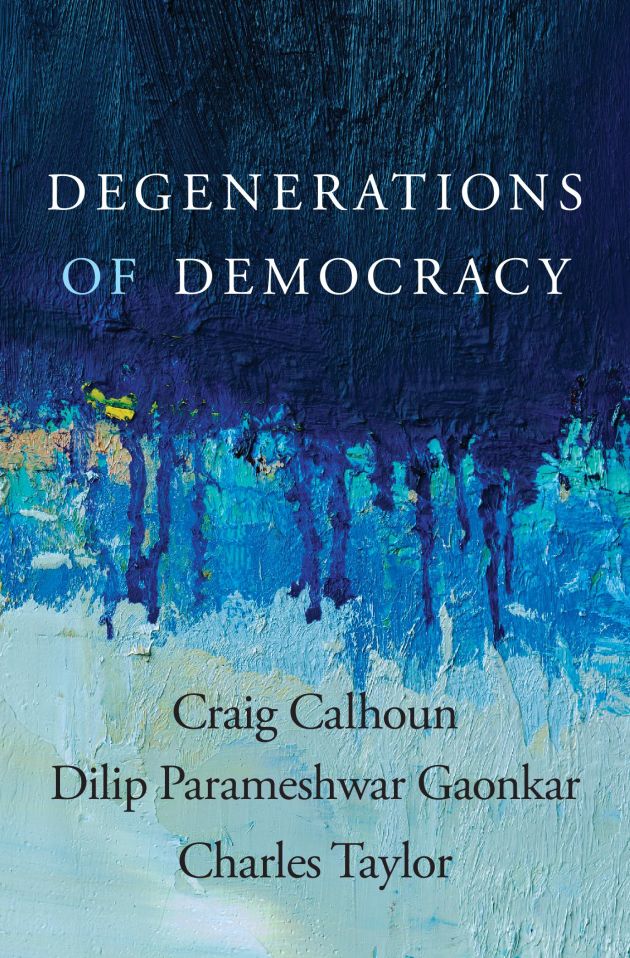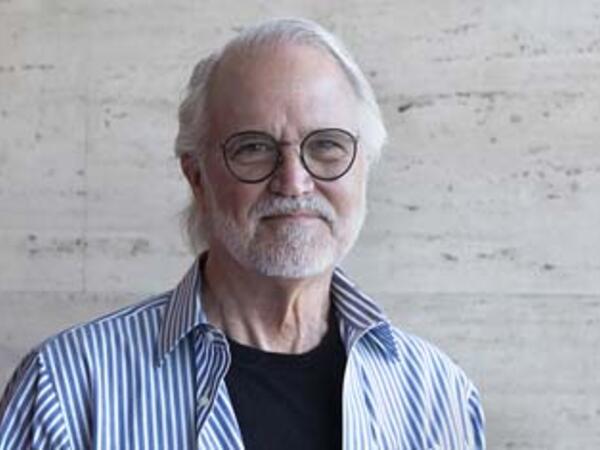Degenerations of Democracy

Many scholars have traced the crisis of Western liberal democracy to the rise of authoritarian and populist leaders. Three distinguished theorists argue that the problems run deeper…Wealth inequality and economic stagnation have exacerbated political divisions, but the bigger problem is the fraying of the civic solidarity that knits citizens together across lines of difference.
G. John Ikenberry, Foreign Affairs
Three leading thinkers analyze the erosion of democracy’s social foundations and call for a movement to reduce inequality, strengthen inclusive solidarity, empower citizens, and reclaim pursuit of the public good.
Publications
Craig Calhoun is the editor, with Benjamin Fong, of The Green New Deal and the Future of Work (Columbia University Press, 2022) and, with a group of his former students, of the most widely used anthologies of Classical and Contemporary Sociological Theory (Blackwell, 4th ed, 2022). He is the author of nine earlier books including Neither Gods nor Emperors: Students and the Struggle for Democracy in China; Critical Social Theory: Culture, History, and the Challenge of Difference; Roots of Radicalism and Does Capitalism Have a Future? (with Immanuel Wallerstein, Randall Collins, Georgi Derluguian and Michael Mann), has edited more than twenty more, and published over 150 peer-reviewed papers, articles and chapters.
Projects
Craig Calhoun’s current research focuses on contemporary transformations, and possible futures: for the political economy of the modern world-system, for universities and knowledge institutions, for democracy, and for shifting structures of social solidarity from local communities to nations, transnational relations, and the reorganization of regions. More philosophically, he is exploring the relationship between transformation and transcendence in understanding human existence itself.
Ideas of the human have often been a neglected background to Western social theory; nonetheless, they are crucial and more problematic than commonly assumed. They are also deeply entwined with notions of the person, self, and individual. Craig Calhoun's inquiries take up this entangled conceptual history and its relationship to more material and practical transformations of the human being.
The Human in Human Rights - three lectures Dr. Calhoun gave at the London School of Economics.
Democracy has been an important goal and widespread achievement throughout the modern era, but it has also sometimes been reversed, has often been subject to struggle, and is under stress and challenge today.
Craig Calhoun's work has addressed popular struggles for public voice and democracy, the relationship of popular struggles to ‘republican’ projects of designing better laws and institutions, and the importance of social foundations for democracy. Most recently, with Dilip Gaonkar and Charles Taylor, Craig Calhoun addressed the Degenerations of Democracy (link to where this appears under publications). This book focuses primarily on Europe and North America but in other work, he addresses global dimensions of democracy and related social transformations.
Multiple and competing identities are prominent in modern life. These correspond, in varying degree, to structures of social relations, shared culture, and mutual commitments. At large scale, they are shaped by markets, states, and other structures of indirect relations. Identities are subject to innovation and choice; they can also be deeply rooted. Moral obligation and political solidarity follow from embedded social relations. At the same time, both morality and practical projects also call on us to transcend local and inherited bases for judgment. We do this by building connections among families and local communities, participating in intermediate associations, social movements, religions, and nations. We articulate norms for relations with those beyond close webs of belonging: fairness, for example, and hospitality. But there is a distinction between norms for direct interactions with strangers and norms for participation in webs of indirect, generally impersonal relations like markets and states. Some, like honesty and adherence to contracts are extensions from norms for direct relations. But ethical universalism and cosmopolitanism encourage transcending group loyalties in the name of justice or a larger good. At every scale there are potential conflicts among norms. But at large-scale there is a particularly challenging tension between norms of belonging – notably to nations, religions, and ethno-racial identities – and norms of disengaged equivalence, like ethical universalism and cosmopolitanism. Neither holds a trump card against the other. In a series of interrelated research projects, Dr. Calhoun focused on both transformations of scale as such and the ways this intersects with both social cohesion and social solidarities.
.
Ethnicities, vol. 3 #4, pp. 558-568.
.
Berkeley Journal of Sociology, vol. 47: 3-26.
Reprinted, slightly revised, in T. Wallgren, ed., Modernity and Morality, Helsinki.

Biography and CV
Craig Calhoun is a comparative and historical sociologist, social theorist, and scholar, known for his interdisciplinary work in anthropology, communications, economics, history, international studies, political science, philosophy, and science and technology studies. His latest book, “Degenerations of Democracy,” co-authored with Charles Taylor and Dilip Gaonkar, was published by Harvard University Press in 2022. He edited “The Green New Deal and the Future of Work” with Benjamin Fong (Columbia University Press, 2022) and has collaborated with former students to create widely used anthologies covering classical and contemporary sociological theory. Calhoun has authored nine books and published over 150 peer-reviewed papers, articles, and chapters.
